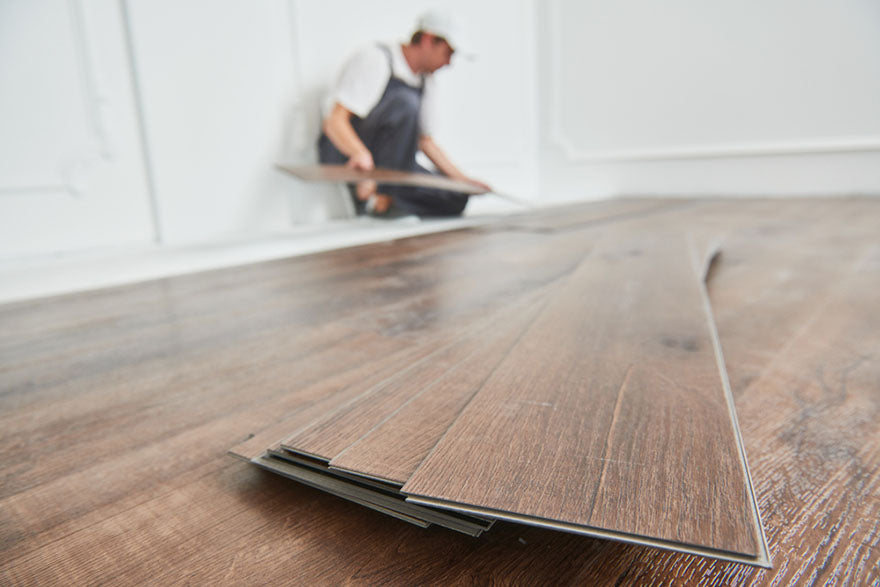
How Thick Is Vinyl Plank Flooring?
Source: Dmitry Kalinovsky/shutterstock.com
If you're planning to install vinyl plank flooring in your home or business, you're in good company. More stylish and resilient than its tile or sheet flooring counterparts, vinyl is becoming a go-to choice for residential and commercial use. Interior designers also appreciate that it comes in a wide range of colors, textures and patterns.
However, there's one more critical factor to consider before you make your final selection: the thickness of the flooring. A too-thin product has a direct impact on its durability and overall quality. Use this guide to help you determine the ideal thickness for your vinyl plank flooring application.
Explore the Benefits of Luxury Vinyl Plank FlooringVinyl Plank Flooring Layers
Vinyl plank flooring is constructed in layers, with each sheet playing a critical role in the look, feel and stability of the product. Generally, the number of layers included depends on the type of plank flooring you choose. Low-end options such as loose-lay products are significantly thinner and have fewer layers than luxury plank flooring. If you're laying the floor as a DIY project, you're likely looking for click-and-lock assembly. Like quality wholesale cabinets or RTA cabinets, they offer the best savings and are easy to install. From top to bottom, here are the types of layers used to construct luxury vinyl plank flooring:
- Typically made from a clear urethane base, the top layer is a protective coating that safeguards the sheen of the surface.
- Next in line is the wear layer, which helps protect the underlying color pattern from stains, scruffs, scratches and dents.
- The third layer consists of a print film on paper that features the color and pattern of the vinyl plank flooring.
- Made from vinyl mixed with other composites such as nano calcium carbonate, the flooring's core is the fourth layer.
- The fifth and final layer is an attached underlayment that absorbs sound and adds flexibility and softness to the product.

Source: Abrym/shutterstock.com
Adding Up the Total Thickness
You'll need to know the total thickness of your vinyl plank flooring and the thickness of the wear layer to make apples-to-apples comparisons. Vinyl flooring is measured using two types of measurements: millimeters and mil. Yes, there's a difference! The overall thickness gets measured in millimeters while the thickness of the wear layer is in mils. Here's how to convert the metric system numbers to standard US measurements.
- A millimeter (mm) is equal to approximately one-thousandth of a meter. (25 mm = 1 inch)
- A mil is equivalent to one-thousandth of an inch. (1 mil = 0.001 inch)
What's the Optimal Thickness for Vinyl Plank Flooring?
Most experts agree that an overall thickness of 5 mm or more is sufficient for most vinyl plank flooring installations. For long-lasting durability, however, it's not enough to measure and compare the total thickness of the layers. It's essential to take the all-important wear layer into account as well. Of all the layers melded together, none plays a more significant role in protecting the flooring from damage.
Unless you're installing the flooring in a place with little foot traffic, look for a minimum of 20 mil or more. The thicker the wear layer, the longer the flooring will last. For best results, partner with a reputable wholesale flooring company with experienced staff who can help guide you toward the ideal choice.

Source: TashaSinchuk/shutterstock.com
Explore Your Vinyl Flooring Options
How thick is vinyl plank flooring? When you choose the right product, you'll find it's thick enough to withstand many years of continual usage. At the Wholesale Cabinet Supply Company, we make it easy to select the flooring that's best for your application.
Not sure which one to choose? We're happy to provide you with flooring and kitchen cabinet samples at your request. Our broad selection of vinyl plank flooring ensures you'll find the perfect option for every room in your home or business.



